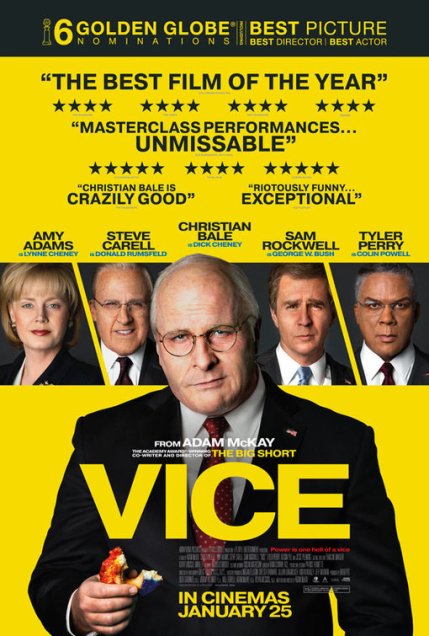Holiday time is great time to go to a movie or two (or three). There is truly something for everyone this season, so enjoy!
“The Girl With The Dragon Tattoo”—The acting, the story and the story telling are good, but it is the title character that dominates this film. She demands your attention when she is on screen. Sure, most of the credit for the character goes to the novelist, but let’s stand up and applaud actress Rooney Mara for bringing life to Lisbeth Salander. Be warned: some of the sexual violence is intense. Overall, TGWTDT is an excellent film and an indelible character. (Scroll down for longer review.)
“The Adventures of Tintin”—Steven Spielberg’s animated adventure is shot in the “performance capture” technique seen in “Polar Express” and “Avatar.” The visuals here are stunning, the 3-D is great, but the plot is one that young kids may have a hard time following. Tintin has been popular in Europe for decades. Will American audiences embrace him and this film? I’d guess yes.
“We Bought a Zoo”—Yep, the title is a spoiler. Matt Damon is a widower who buys a rundown private zoo. With his two kids and the dedicated staff he inherits, he works to get the zoo back up to speed. One kid is a pouty teen boy. The other is a seven-year-old girl who is the cutest kid in a movie since Drew Barrymore in “E.T.” Among the zoo staff is eye candy Scarlett Johansson. Perfect family film.
“The Artist”—This silent movie, filmed in black and white, is a huge hit with critics. The concept and the storytelling are clever. The performances and the music are outstanding. Though set in Hollywood, the two leads are French actors who are unknown in the US. A familiar face is John Goodman, who makes the most of his screen time as an exec guiding his studio through the transition to talkies. It’s different, but a great movie.
“Tinker, Tailor, Soldier Spy”—Based on the British spy novel, TTSS has a story that is just okay—not that special. The acting is good, especially by lead Gary Oldman. It’s set in the early 70’s, so we see artifacts of the era including reel-to-reel tape recorders, teletype machines and even a pair of hotpants. You might want to opt for something else in the multiplex.
“War Horse”—This is a classic—a story of a boy and his horse. They both go to World War I for Britain, separately. The movie follows the horse through all his war adventures. If you are the emotional type, bring some tissues. If someone you know loves horses, you must take her/him to see this. The cinematography is outstanding. Directed by Steven Spielberg.
“Mission: Impossible—Ghost Protocol”—Action galore. Tom Cruise and his M:I team are out to save the earth from nuclear annihilation. Sounds simple, right? But it turns out to be complicated. The film’s highlight is the sequence with Tom climbing on the outside of that extremely tall building in Dubai. In a genius casting move, Simon Pegg of “Shaun of the Dead” fame, appears as the team’s timid electronics guy. See it on the IMAX if you can—a big screen for a big movie.
“Sherlock Holmes: A Game of Shadows”— Robert Downey Jr. brings massive on-screen charm. The film crew brings the gimmickry, which provides much of the film’s fun. The plot, however, is a bit of a mess. Jude Law returns as Watson, Holmes’ assistant, consultant, rescuer, foil and chronicler. Good, not great.
“Young Adult”—The lead character in “Young Adult” is not especially likable. The movie, though, has a lot to like. Charlize Theron plays a woman with baggage who returns from the big city to her small hometown in Minnesota. There are some big laughs in “Young Adult, “ but it also serves up some thoughtful takes on modern American life. Directed by Jason Reitman who did “Up in the Air” and “Juno.”
Also still around:
“The Descendants”—My pick for best movie of the year. Family drama with comedic elements, set in Hawaii. George Clooney is a likely Oscar winner in the lead role.
“The Muppets”—The “feel good movie of the year.” This musical comedy has a funny script, great songs and an old-timey look.
“Hugo”—This movie about a boy living in a Paris train station takes a left turn midway and flashes back to the early days of filmmaking. Nice visual effects and excellent 3-D.
“My Week with Marilyn”—Michelle Williams will get an Oscar nomination for her performance as Marilyn Monroe in this story, set in the 1950’s.
“New Year’s Eve”—Standard romantic comedy with scads of stars. Some end up happy; others, not so happy. In the formula of last year’s “Valentine’s Day.”
Best bets for grownups: “The Descendants,” “The Girl with the Dragon Tattoo,” “The Artist,” “Mission Impossible—Ghost Protocol,” “Young Adult,” “My Week with Marilyn.”
Best bets for families: “We Bought a Zoo,” “War Horse,” “The Muppets,” “The Adventures of Tintin.”
Only go if everything else is sold out: “Sherlock Holmes: A Game of Shadows,” “Tinker, Tailor, Soldier, Spy,” “Hugo,” “New Year’s Eve.”




